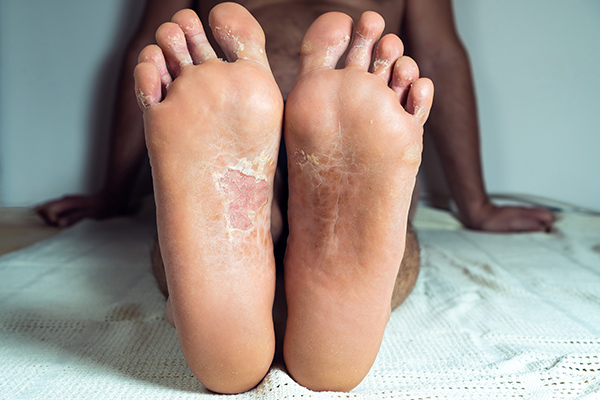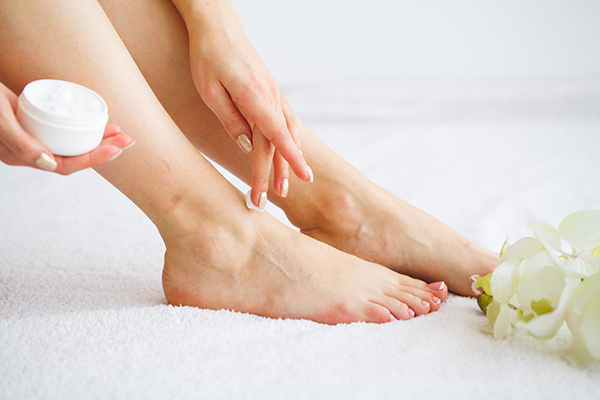Athletes Foot
Toe web infection
Red, scaly, and cracked skin.
A burning sensation between the toes.
A bad odor or discharge.
Further skin breakdown if a secondary bacterial infection develops.
Moccasin infection
Begins as sore or dry skin that thickens and cracks over time.
May spread to the toenails.
Can be worsened by biomechanical issues like high arches or flat feet.
Previous ankle injury/ sprain
Vesicular infection
Can appear anywhere on the foot, but is most often found between the toes or on the sole
Typically begins with itchy or painful blisters
Blisters that break open can become infected with bacteria
What Causes Athlete’s Foot?
Athlete’s foot is a fungal infection caused by tinea, which thrives in warm and damp conditions, making it common in humid places like Singapore.
Fungal infections can spread easily between people. You might get athlete’s foot by walking barefoot on wet surfaces, such as near swimming pools or in locker rooms, by coming into contact with someone who has the infection, or by touching contaminated surfaces.
If you have a weakened immune system from conditions like autoimmune diseases, diabetes, or chemotherapy, it’s important to see a podiatrist as soon as you notice symptoms of athlete’s foot. If left untreated, this infection can spread and make you more vulnerable to other infections.


Home Remedies for Athlete’s Foot
For mild cases, home remedies like using talcum powder or vinegar soaks might help. However, if these don’t work or if the infection gets worse, it’s best to consult a foot specialist or podiatrist.
A podiatrist can diagnose and treat various foot conditions, including athlete’s foot. They will examine the affected area to confirm the infection and recommend the best treatment, which may include topical or oral medications. They can also offer advice on how to speed up recovery and prevent the infection from spreading.
Book your initial podiatry visit
hello@nofrillspodiatry.com
Phone
9007 1085
Open Hours
Mondays - Sundays: 9am-6pm
We're Here Whenever You Need Us
hello@nofrillspodiatry.com
Contact Us
9007 1085
Open Hours
Monday-Sundays: 10am to 7pm
Address
About
About Us
Symptoms We Help With
FAQs
Careers
Contact Us